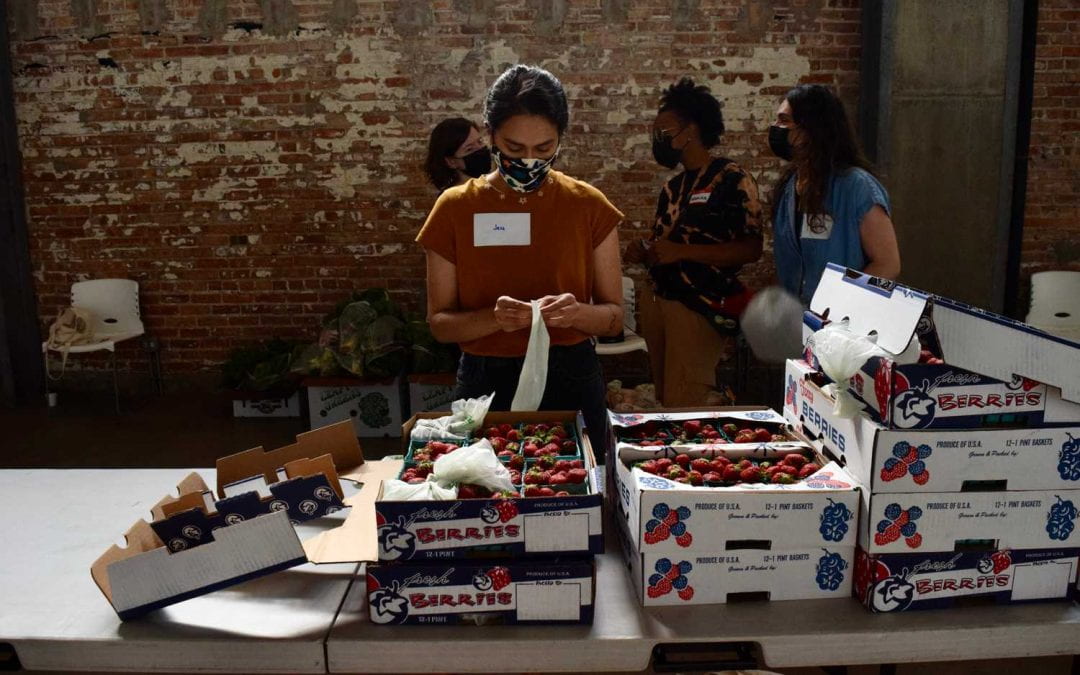When Chicago locked down for COVID-19 in 2020, so did its farmers markets. At the Experimental Station at 61st Street and Blackstone Avenue, members of the 61st Street Farmers Market, bookstore and coffee shop Build Coffee, and journalism organizations Invisible Institute and South Side Weekly joined forces to create Market Box, a mutual aid initiative that distributes fresh produce from small local farms to families in need on the south side of Chicago. In this interview, co-organizer and current executive director Hannah Nyhart, who also owns and operates Build Coffee, describes how a one-time grassroots mutual aid pandemic response has grown into a year-round way for neighbors to care for neighbors.
In April 2020, when farmers markets shut down, there was suddenly a disconnect between small farms and their normal supply chain—the restaurants and the people who used to buy from them. And folks who had been using Link, which doubles SNAP dollars up to $50, lost a route to access fresh produce. There was all this food from small farms, but there wasn’t a clear way to get it to people who needed it.
Market Box began as a grassroots mutual aid pandemic emergency response by folks working with different organizations in the Experimental Station: the 61st Street Farmer’s Market, Build Coffee, the Invisible Institute, and Southside Weekly. Our normal work was ruptured or paused by the pandemic, and we felt a real desire to figure out how to be useful. We had a direct view on the dual problem: the small farmers didn’t have an income stream, and anybody who had been relying on the market for fresh produce didn’t have that option anymore. [So] we worked with Star Farm’s CSA to bulk-buy food from small farms and crowdfunded to distribute it for free across the south side.
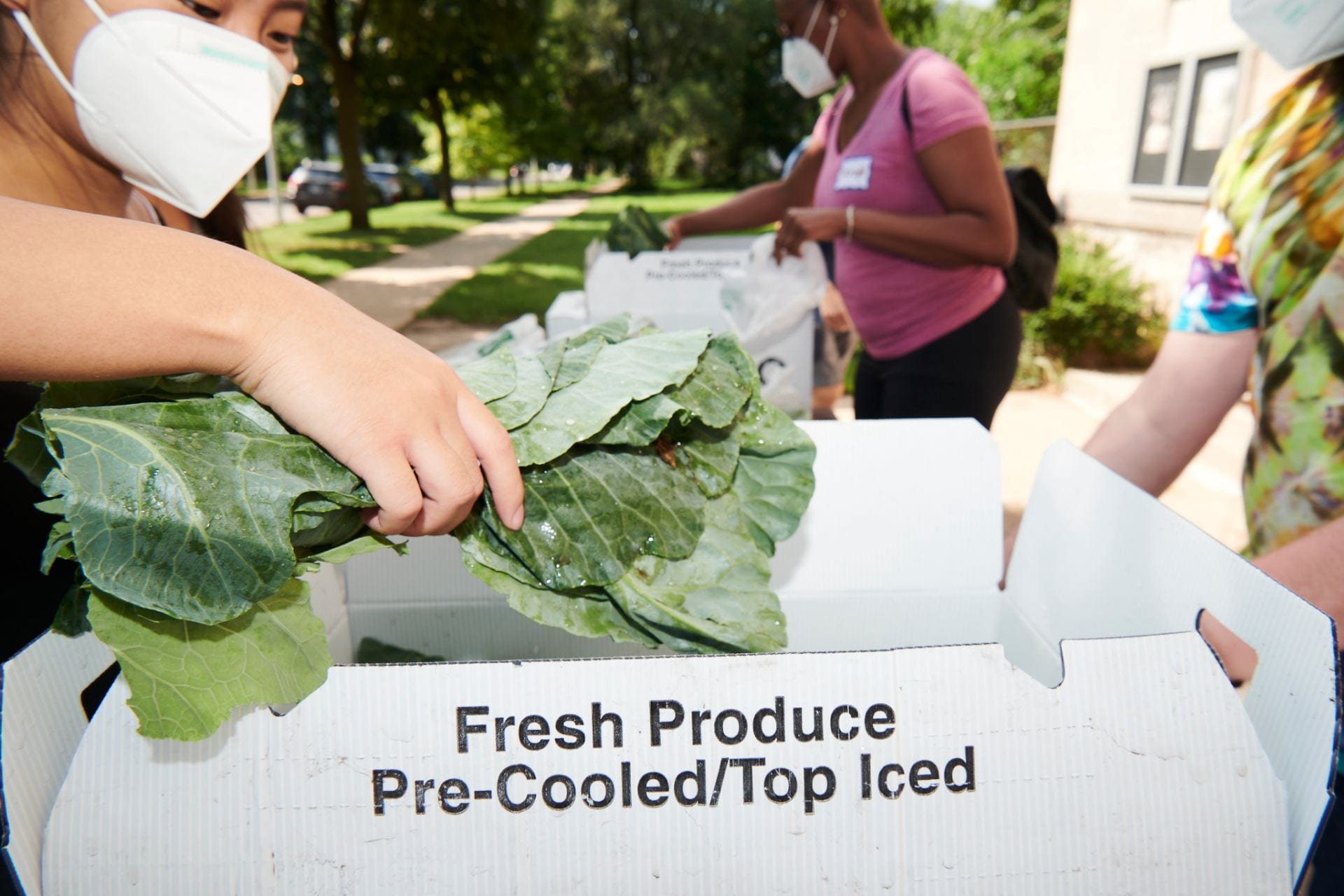
Market Box volunteers pack fresh produce. Photo by Kristi Jan Hoover.
Our community responded with a ton of generosity. Initially we were just going to do a hundred one-time CSAs. Instead, we had a really significant number of people signing up to get those deliveries and a really generous response from grassroots donations. So a single standalone act of care rolled forward into a recurring project. Over the last three years we’ve done a ton of intentional building to turn this from an emergency response to a sustainable project: we worked to get 501c3 status, we have a couple of paid coordinators now, we’ve moved locations, and we’ve grown to 450 active families in our network and deliver to about 420 of those each month.
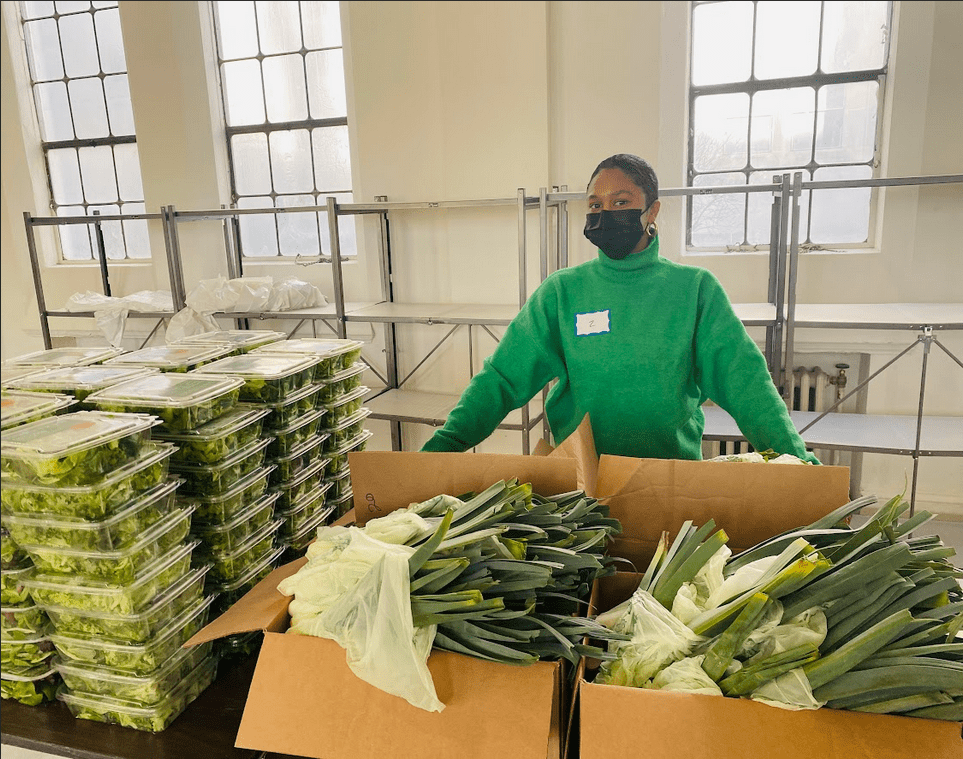
Photo by Jaela Hall
So much of Market Box has been organized on a group chat. Over time, members of our core team are now co-organizers, and we lead alongside our board and part-time staff. We rotate the title of executive director year to year across the co-organizers, so right now I’m the executive director, but a lot of the leadership responsibility is shared across the four co-organizers [Brigid Maniates, Hannah Nyhart, Maira Khwaja, and Mara Heneghan].
Market Box is now based at First Presbyterian Church of Chicago (6400 S. Kimbark Ave). One of the best things about that is we’re cohoused with other food projects, like the Free Food Market on Thursdays, which is one of the Greater Chicago Food Depository pantries [in partnership with the 65th & Woodlawn Community Garden, and Kumunda Gardens]. When people walk down, they’ll stick their heads in and see what’s going on. I like having that open door.
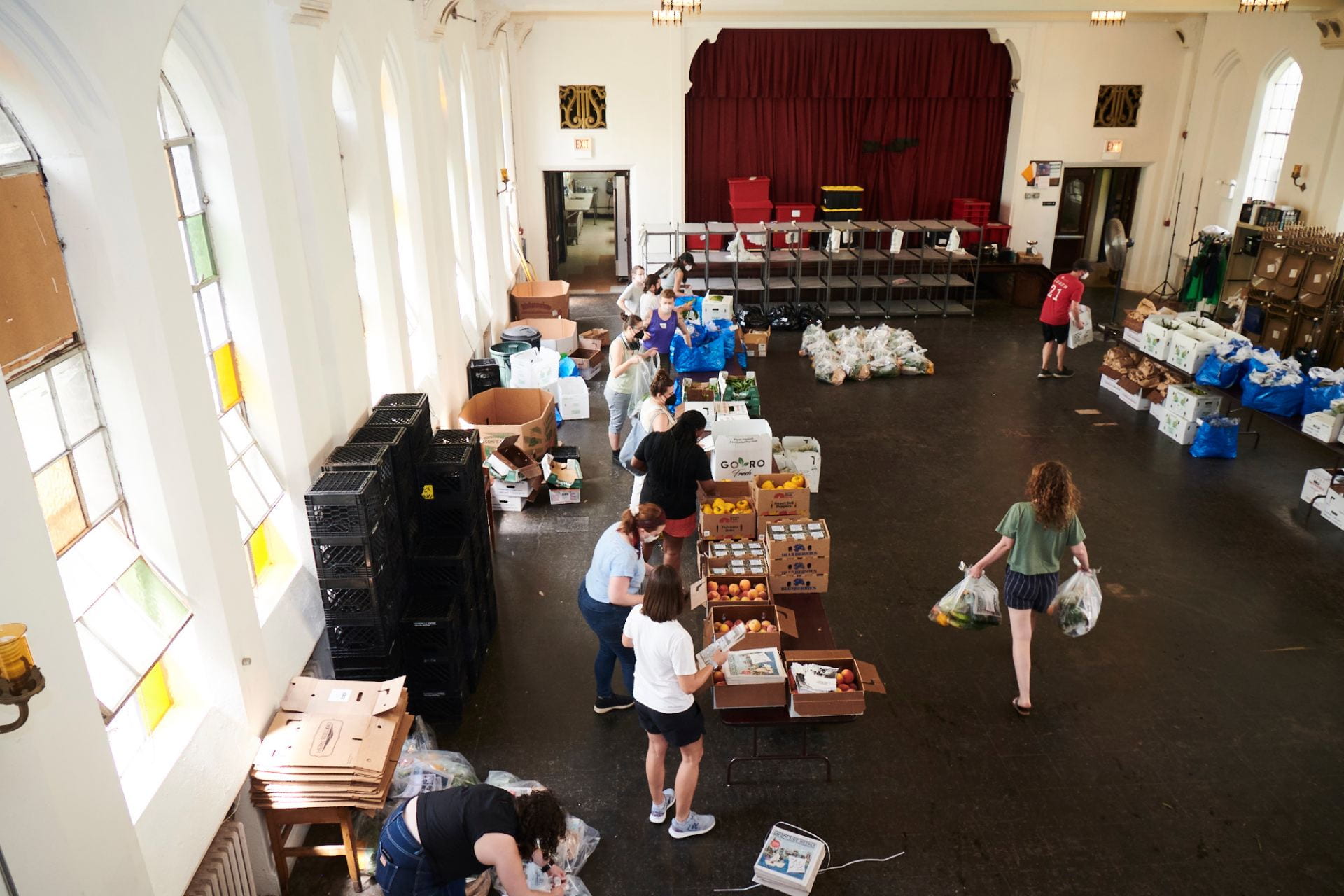
Market Box volunteers pack fresh produce at their Woodlawn Packing Site. Photo by Kristi Jan Hoover.
I love Market Box, and I think a lot of people get a lot of joy from it, but we want a world where Market Box wouldn’t have to exist. One lesson from Market Box is how insufficient our existing systems of benefits are. Fifty percent of the people Market Box delivers to qualify for some form of aid—like SNAP, Medicaid, or Medicare—but 86% of the people we deliver to say that Market Box is very important to their household having enough food to eat. The benefits people get are not enough—people who are getting benefits still need something like Market Box. And there’s this whole swath of people who don’t qualify for benefits but who do not have enough to eat. That’s atrocious! We should be able to take care of our people better than that.
As Market Box grows, we’re thinking deeply about how to put a strong network like this to use. Earlier this winter we had a NARCAN training at our packing site. On June 3, we’re teaming up with the Red Cross to install smoke alarms in 100 households in our network. That was a critical need that was identified in the wake of building fires that have happened on the south side in the last year. We’re excited about having the roots and base of this ecosystem be food and all of the things you can build on that. This is about community power.
Get involved with Market Box!
Volunteer to help distribute food (last 2 Saturdays of every month)
Follow Market Box on Facebook, Twitter, and Instagram at @marketboxchi
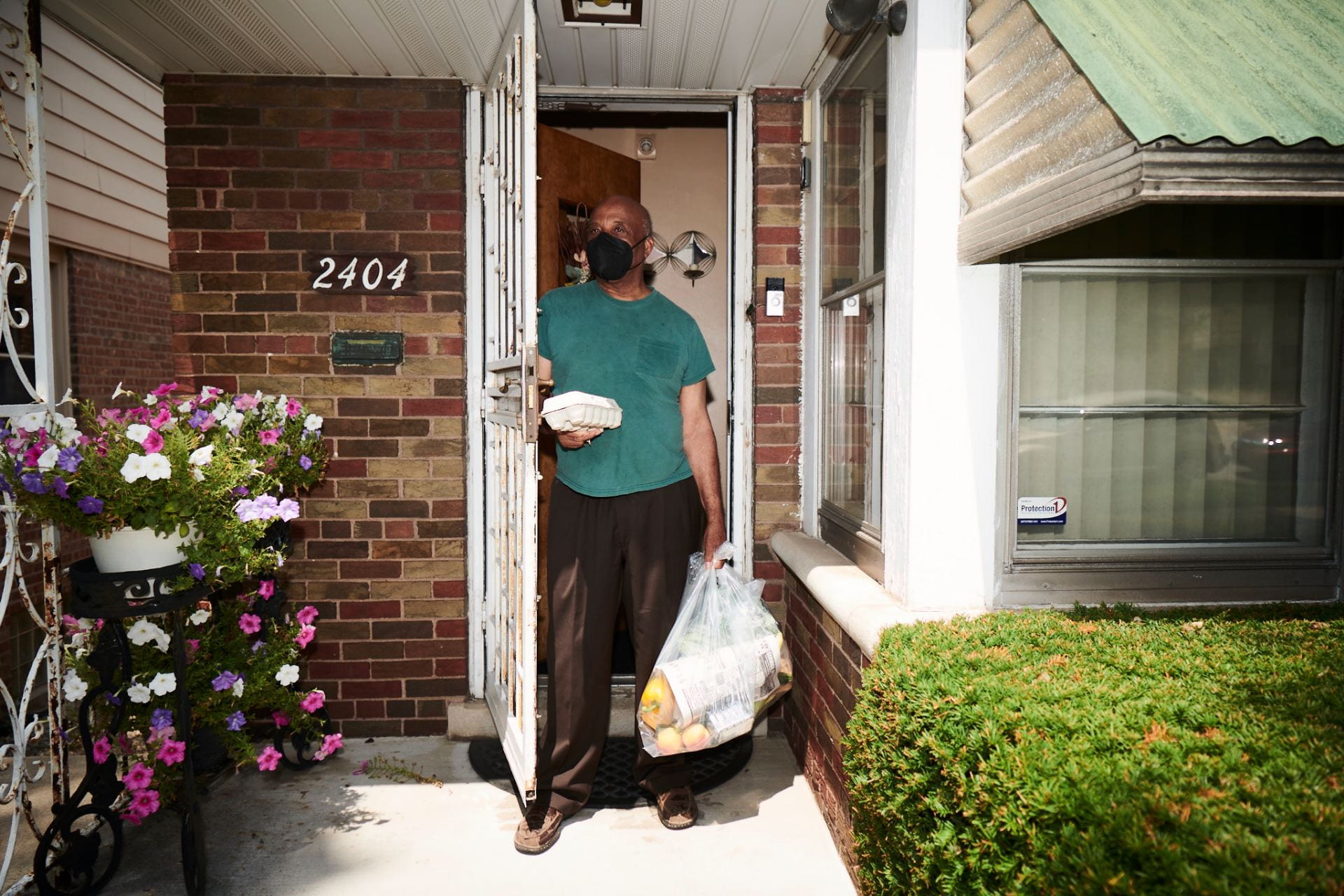
A Market Box community member receives their fresh food delivery. Photo by Kristi Jan Hoover.

